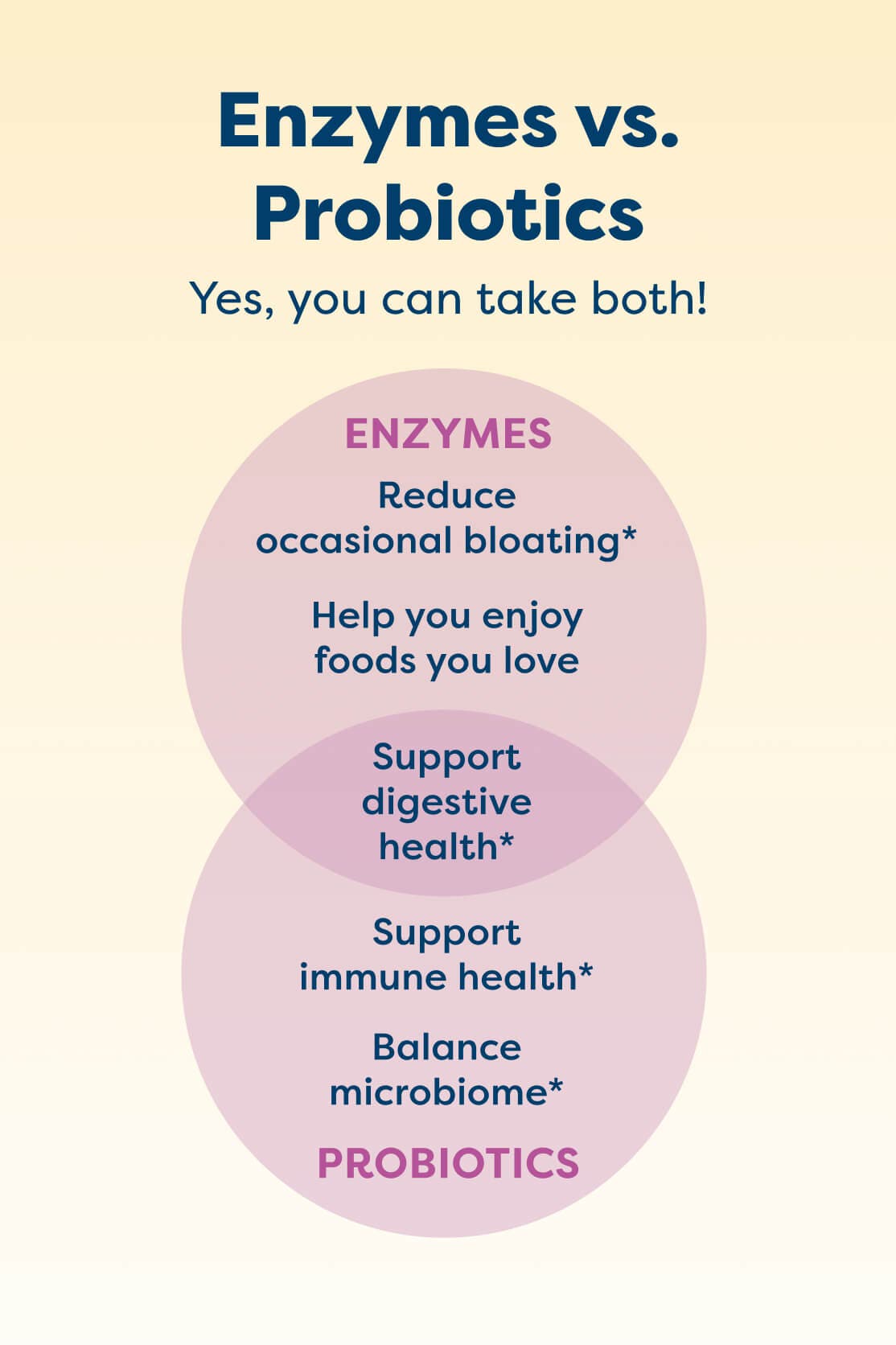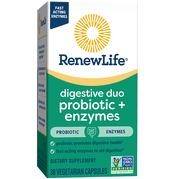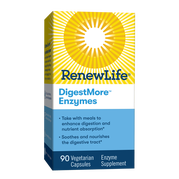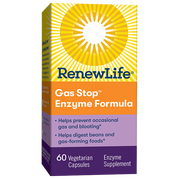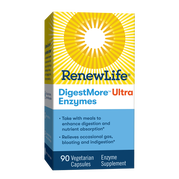Enzymes 101
Everything you need to know about enzymes and how they can help support your digestive health*
Enzymes 101
Everything you need to know about enzymes and how they can help support your digestive health*
If my body makes enzymes, why would I need to take an enzyme supplement?
Some foods, including many fruits and vegetables in their raw, natural state contain enzymes that can help with digestion. However, we often don't reap the benefits of these natural enzymes because they are destroyed through cooking and processing.
In the past, humans consumed plenty of raw foods to help re-supply the digestive tract with beneficial enzymes, but today many of the foods we eat are cooked or processed—both of which deplete natural enzymes. What’s more, because even the raw foods we eat are typically transported and refrigerated, their natural enzyme content may be lowered. When you eat foods that lack enzymes, your digestive system has to work harder to break down and absorb their nutrients. This may result in occasional gas, bloating or indigestion.
There are also several digestive enzymes the human body can’t make. These include cellulase and phytase, the enzymes needed to break down cellulose (plant fiber) and the phytic acid found in beans and legumes. Because our bodies don’t make these enzymes, many people have trouble breaking down starchy beans, legumes and nuts to absorb their beneficial nutrients.
In addition, as we age, our bodies may produce fewer digestive enzymes, making it difficult to break down food and absorb nutrients. Over time, our bodies produce less protease, lipase and amylase, which means digestion of protein, fats and carbohydrates may be impaired as we get older. As a result, some people may experience occasional digestive discomfort after eating a meal or when they eat a specific type of food, such as dairy products.
Supplemental digestive enzymes can help support efficient digestion and keep your digestive system feeling comfortable, which means you can enjoy eating the foods you love.
Enzymes also help with nutrient absorption. By helping to break apart the bonds that hold nutrients from food together in the digestive tract, enzymes help make these nutrients available for the body to use for energy and other important functions.
Ready to enjoy more comfortable digestion?


If my body makes enzymes, why would I need to take an enzyme supplement?
Some foods, including many fruits and vegetables in their raw, natural state contain enzymes that can help with digestion. However, we often don't reap the benefits of these natural enzymes because they are destroyed through cooking and processing.
In the past, humans consumed plenty of raw foods to help re-supply the digestive tract with beneficial enzymes, but today many of the foods we eat are cooked or processed—both of which deplete natural enzymes. What’s more, because even the raw foods we eat are typically transported and refrigerated, their natural enzyme content may be lowered. When you eat foods that lack enzymes, your digestive system has to work harder to break down and absorb their nutrients. This may result in occasional gas, bloating or indigestion.
There are also several digestive enzymes the human body can’t make. These include cellulase and phytase, the enzymes needed to break down cellulose (plant fiber) and the phytic acid found in beans and legumes. Because our bodies don’t make these enzymes, many people have trouble breaking down starchy beans, legumes and nuts to absorb their beneficial nutrients.
In addition, as we age, our bodies may produce fewer digestive enzymes, making it difficult to break down food and absorb nutrients. Over time, our bodies produce less protease, lipase and amylase, which means digestion of protein, fats and carbohydrates may be impaired as we get older. As a result, some people may experience occasional digestive discomfort after eating a meal or when they eat a specific type of food, such as dairy products.
Supplemental digestive enzymes can help support efficient digestion and keep your digestive system feeling comfortable, which means you can enjoy eating the foods you love.
Enzymes also help with nutrient absorption. By helping to break apart the bonds that hold nutrients from food together in the digestive tract, enzymes help make these nutrients available for the body to use for energy and other important functions.
Ready to enjoy more comfortable digestion?








